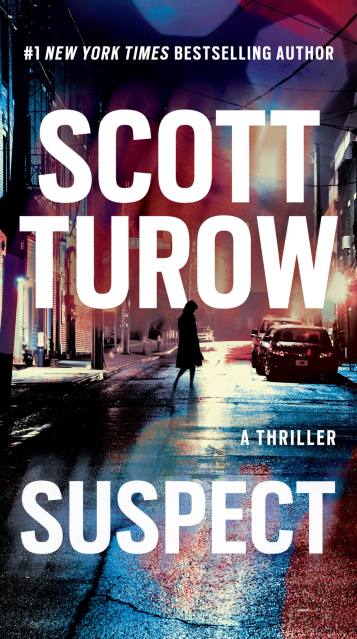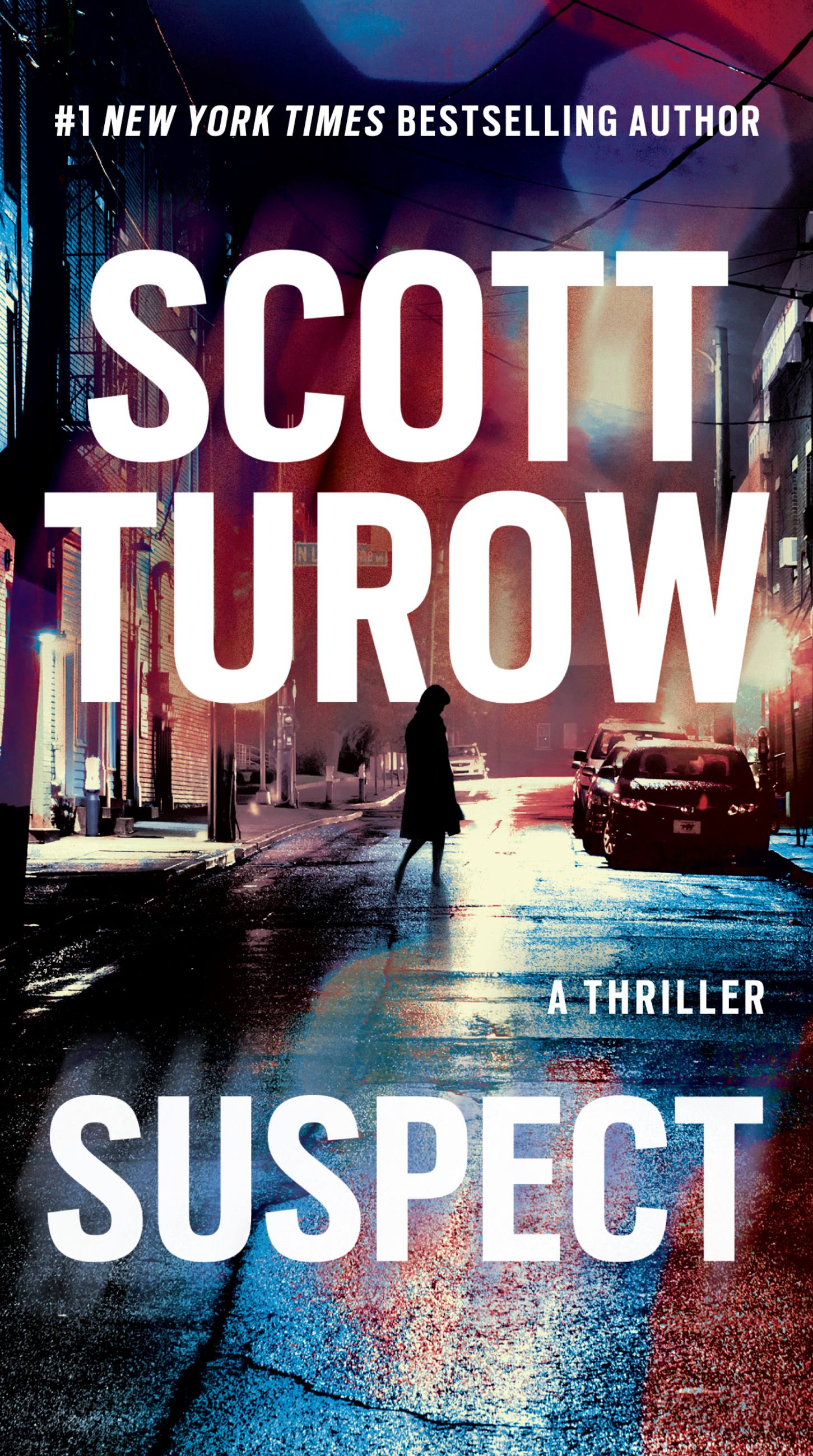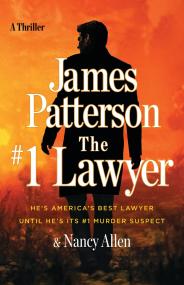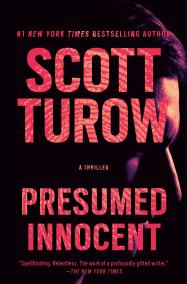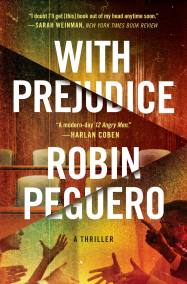Promotion
Use code MOM24 for 20% off site wide + free shipping over $45
Suspect
Contributors
By Scott Turow
Formats and Prices
Price
$40.00Price
$50.00 CADFormat
Format:
This item is a preorder. Your payment method will be charged immediately, and the product is expected to ship on or around September 27, 2022. This date is subject to change due to shipping delays beyond our control.
Also available from:
For as long as Lucia Gomez has been the police chief in the city of Highland Isle, near Kindle County, she has known that any woman in law enforcement must walk a precarious line between authority and camaraderie to gain respect. She has maintained a spotless reputation—until now. Three male police officers have accused her of soliciting sex in exchange for promotions to higher ranks. With few people left who she can trust, Chief Gomez turns to an old friend, Rik Dudek, to act as her attorney in the federal grand jury investigation, insisting to Rik that the accusations against her are part of an ugly smear campaign designed to destroy her career and empower her enemies—both outside the police force and within..
Clarice “Pinky” Granum spent most of her youth experimenting with an impressive array of drugs and failing out of various professions, including the police academy. Pinky knows that in the eyes of most people, she's nothing but a screwup—but she doesn't trust most people's opinions anyway. Moreover, she finally has a respectable-enough job as a licensed P.I. working for Rik on his roster of mostly minor cases, like workman's comp, DUIs and bar fights. Rik's shabby office and even shabbier cases are a far cry from the kinds of high-profile criminal matters Pinky became familiar with in the law office of her grandfather, Sandy Stern. But Rik and Pinky feel that Chief Gomez’s case, which has attracted national attention, is their chance to break into the legal big leagues.
Guided by her gut instinct and razor-sharp investigative skills, Pinky dives headfirst into a twisted scandal that will draw her into the deepest recesses of the city’s criminal networks, as well as the human mind. But she will need every scrap of tenacity and courage to unravel the dark secrets those closest to her are determined to keep hidden.
Genre:
-
“Satisfyingly fresh and creative . . . Turow has created one of contemporary fiction’s most complicatedly arresting characters, one not easy to adore but one impossible to ignore.”Chicago Tribune
-
"Courtroom scenes remain gratifyingly sharp."New York Times
-
“The courtroom scenes in Suspect are rich with the character sketches and surprise revelations we’ve come to expect from a Scott Turow novel. Pinky’s own narrative presents a vivid portrait of an offbeat character who, at 33, is still a work in progress. The suspense and intrigue build as the chapters progress, culminating in a breathtaking finale.”Wall Street Journal
-
“Turow has long been among the finest writers of legal and crime thrillers, with creative plotting, colorful characters, and exceptional writing . . . Very few writers could create an administrative hearing of a local Police and Fire Commission that is as captivating as any murder trial, with shocking testimony, surprise evidence, and huge emotional swings."National Book Review
-
“One of his best books ever, ripe for the times . . . Great reading entertainment from the first page to the last, a terrific thriller that sprinkles in just enough legalese to please Turow's most ardent fans. Here's hoping we hear from him again soon, and that he brings Pinky along for the ride.”Providence Sunday Journal
-
“Turow clearly had fun writing this one, and his fans will have fun reading it.”Kirkus
-
“Pinky’s unconventional, socially awkward narration offers a fresh take on sticky legal issues, and Turow’s carefully paced, tight plotting complements her dedication to the long game.”Booklist
-
"Turow’s new protagonist is a breath of fresh air."Los Angeles Times
-
"Since the ’80s, readers have considered bestselling author Scott Turow a king in the legal thriller genre, and in Suspect, he does not disappoint.”The Big Thrill
-
“Turow’s a writer rather than just a plotter, as he demonstrates with his winning portrait of the protagonist of Suspect... More than earns its payoff.”The Times
-
“Telling this story through Pinky Granum’s first-person eyes converts Suspect from a solid, well-plotted police-and-courtroom thriller into something unusually fresh and interesting . . . This is the stuff of a classic Turow thriller.”BookTrib
-
"Turow, as always, provides lush prose and a heady mix of ideas amidst the hard-charging action."Crimereads
-
“An interesting and thoughtful novel by a keen observer of the legal system.”Illinois Times
-
“Readers will be drawn into Suspect’s narrative and their expectations challenged at each successive development in the case. With each new revelation about the players involved, readers will be left wanting to know more about them long after the book’s . . . ending.”Mystery Scene magazine
-
"Suspect is full of plot twists and surprises, but make no mistake that this is Pinky’s novel, and she is an extremely likable and unique protagonist.”BookReporter.com
-
“Scott Turow . . . has ruled the legal thriller for a long time. In some ways, he just seems to get better, and his latest only further cements his place as one of the all-time greats.”The Real Book Spy
-
“A first-rate legal thriller that keeps you reading. One of Turow’s best and that’s saying a lot.”Globe & Mail
-
"Exposes the vulnerability of the legal system where someone with an agenda can use it to their advantage . . . intense courtroom scenes . . . readers will turn the pages to find the outcome."Crimespree
-
"In this meticulously devised courtroom drama, rich with character detail, Turow again demonstrates what he does best: roll out a complex, keenly observed legal case yet save a boatload of surprises for its ending. And make it personal."New York Times on The Last Trial
-
"Since Presumed Innocent rocked the publishing world, Scott Turow has cemented his status as a writer with few peers in any genre. Now the master is back with a brilliant courtroom chess match that shows us the human quotient in all its rot and virtue. The Last Trial is a first-class legal thriller."David Baldacci, #1 New York Times bestselling author
-
"Scott Turow set the gold standard for the modern legal thriller . . . A valedictory-tinged work."Wall Street Journal on The Last Trial
-
"One of the major writers in America."NPR
-
"No one tells this sort of story better than Turow. No one has illuminated the human side of the legal profession with such precision and care. The Last Trial is Scott Turow at his best and most ambitious. He has elevated the genre once again."Washington Post
-
"This is thriller writing of the highest order, at once a brilliant character study and superb exploration of the nature, and relative merits, of the truth."Providence Journal on The Last Trial
- On Sale
- Sep 27, 2022
- Page Count
- 688 pages
- Publisher
- Grand Central Publishing
- ISBN-13
- 9781538726587
Newsletter Signup
By clicking ‘Sign Up,’ I acknowledge that I have read and agree to Hachette Book Group’s Privacy Policy and Terms of Use
